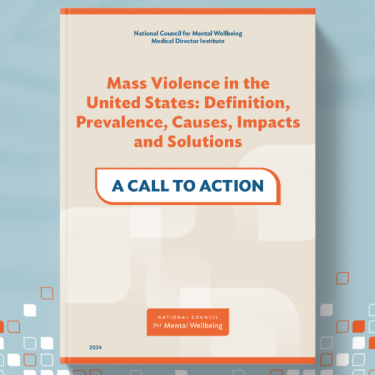The Excellence in Mental Health and Addiction Treatment Act of 2021 was introduced today in the House, following its introduction in the Senate on June 15. If passed, the bipartisan legislation would allow every state the option of joining the innovative Certified Community Behavioral Health Clinic (CCBHC) demonstration and authorize investments in the model for current and prospective CCBHCs.
CCBHCs provide rapid and timely access to comprehensive mental health and substance use treatment services. Since the initiation of this innovative model, data confirms that adopting the model allows clinics to serve more people in need, radically reduce wait times, offer expanded access to medication-assisted treatment (MAT) and hire more staff.
National Council President and CEO Chuck Ingoglia released the following statement applauding the reintroduction:
“Certified Community Behavioral Health Clinics – CCBHCs – offer a practical and scalable solution to meet our nation’s mental health and substance use crisis by expanding access to evidence-based substance use treatment, diverting people in crisis from hospitals, expensive emergency departments and jails. Their resounding success both before and during the COVID-19 pandemic prove that no matter what, CCBHCs rise to meet the needs of their communities.
“But far too many Americans still live in communities without a CCBHC, making it critical for Congress to expand this important program. We need swift action to combat the rise in reported mental health conditions, overdose deaths and a shrinking mental health workforce, and CCBHCs are proving to be an effective solution.
“The Excellence Act boldly commits to making CCBHCs a reality in every state across the nation. We thank Sens. Debbie Stabenow (D-Mich.) and Roy Blunt (R-Mo.), as well as Sens. Ron Wyden (D-Ore.), Steve Daines (R-Mont.), Catherine Cortez Masto (D-Nev.), Joni Ernst (R-Iowa), Tina Smith (D-Minn.) and Jon Tester (D-Mont.) for introducing the Excellence Act in the Senate.
“We also thank Reps. Doris Matsui (D-Calif.) and Markwayne Mullin (R-Okla.), as well as Reps. Angie Craig (D-Minn.), David McKinley (R-W.Va.), Paul Tonko (D-N.Y.), and Brian Fitzpatrick (R-Pa.) for introducing the Excellence Act in the House.
“Together, these lawmakers have demonstrated their bipartisan leadership and recognition that access to comprehensive mental health and substance use treatment should not depend on where you live. We encourage Congress to pass the Excellence Act so clinics and organizations in every community in the nation have the chance to become a CCBHC.”
Key provisions of the Excellence in Mental Health and Addiction Treatment Act:
- Allows any state or territory to participate in the CCBHC Medicaid Demonstration program (currently, only 10 states are in the demonstration) and allocates additional planning grant monies for states to prepare to do so.
- Authorizes monies for Substance Abuse and Mental Health Services Administration (SAMHSA) CCBHC Expansion Grants, an important tool in helping provider organizations adopt the CCBHC model and prepare for participation in state-led CCBHC implementation efforts.
- Establishes and funds a technical assistance center for current and prospective CCBHCs within SAMHSA.
###
About The National Council
Founded in 1969, the National Council for Mental Wellbeing is a membership organization that drives policy and social change on behalf of over 3,200 mental health and substance use treatment organizations and the more than 15 million children, adults and families they serve. We advocate for policies to ensure access to high-quality services. We build the capacity of mental health and substance use treatment organizations. And we promote greater understanding of mental wellbeing as a core component of comprehensive health and health care. Through our Mental Health First Aid (MHFA) program, we have trained more than 4 million people in the U.S. to identify, understand and respond to signs and symptoms of mental health and substance use challenges.



